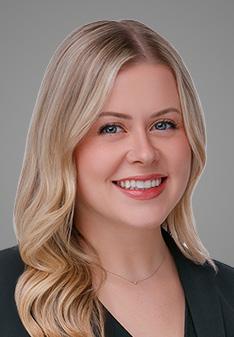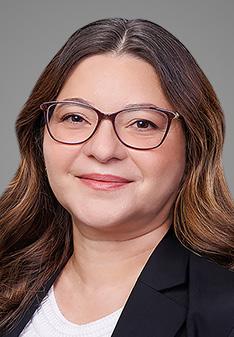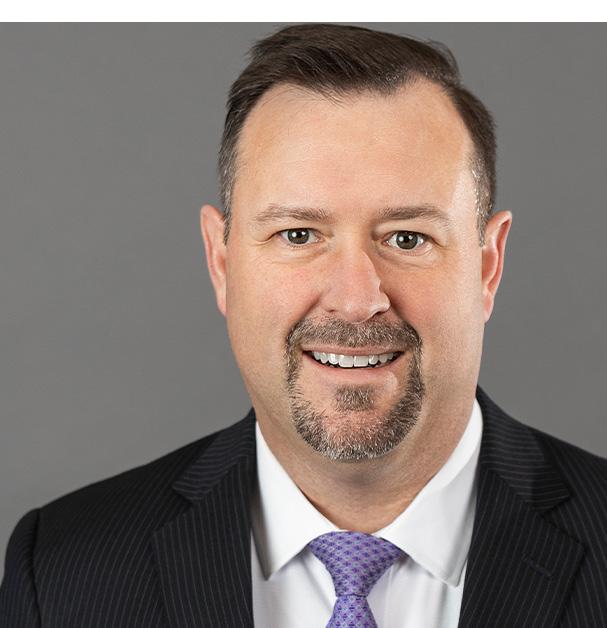





The California Department of Education and the Los Angeles Unified School District have agreed to permit religious private schools as potential placements for students with disabilities. This decision stems from a settlement in the case of Loffman v. California Department of Education, where Orthodox Jewish parents contended that the State's exclusion of religious schools from publicly funded special education placements constituted unconstitutional religious discrimination. The settlement follows an October 2024 ruling by the 9th U.S. Circuit Court of Appeals, which found the State's nonsectarian requirement likely violated the First Amendment.
Under the agreement, religious schools can now be considered for placements determined by a student's Individualized Education Program (IEP) team when public schools cannot meet the student's needs. In such cases, public funding will cover tuition and related services at these religious institutions. Previously, parents who independently placed their children in religious schools bore the full cost and forfeited certain protections under the Individuals with Disabilities Education Act (IDEA) under what was known as the “nonsectarian requirement.” The settlement prohibits the State from enforcing the nonsectarian requirement and bars any appeals.
Capital Elementary School is a certified nonpublic school in California. This means that the School is a for-profit, nonsectarian school that contracts with public school districts to provide specialized services for students whose needs cannot be met in traditional public school settings. In 2019, C.R., a student diagnosed with autism and fetal alcohol syndrome, was
enrolled at the School pursuant to an Individualized Education Program (IEP) developed by her home school district, the Elk Grove Unified School District. C.R., through her guardian ad litem, alleged that while she was a student at the School, she was repeatedly sexually assaulted by classmates. Her grandmother claimed she notified School staff and administrators about the abuse, and that she also contacted a District specialist overseeing nonpublic school placements. The abuse allegedly continued until the student was withdrawn from the School.
C.R. filed suit asserting six claims against the School, the District, and individual defendants, including violations
of the Americans with Disabilities Act (ADA), Section 504 of the Rehabilitation Act, Title IX, California’s Unruh Act, and various statutory negligence provisions. At issue in the decision were motions by the School and its executive director, seeking to dismiss or obtain summary judgment on three of those claims—specifically the claims under Section 504 and the Unruh Act.
The Unruh Act provides (among other things) that all persons in California, no matter their disability, are entitled to the full and equal accommodations in all business establishments. There has been debate as to whether the Unruh Act applies to schools. The School argued that it was not a “business establishment” within the meaning of the statute. While the School is a for-profit entity and generates substantial annual revenue—approximately $2 million—it does not charge tuition or fees to families. Instead, the School receives payments directly from school districts like Elk Grove Unified School District pursuant to master contracts mandated by California Education Code section 56366. These contracts prohibit the School from charging parents for services required under the IEP.
The Court agreed with the School, holding that it was not functioning as a business establishment in its relationship with C.R. The Court emphasized that under the California Supreme Court’s recent decision in Brennon B. v. Superior Court, a key factor in Unruh Act applicability is whether the entity is engaged in commercial transactions with the person alleging discrimination. Because the School’s relationship with C.R. was not transactional—she and her family paid nothing for her education—the Court concluded that the School was operating in a public education capacity and not as a commercial enterprise. The Court acknowledged that the School is legally structured as a business and listed itself as “retail” on a Paycheck Protection Program application, but found those facts insufficient to convert the School into a business establishment under the Unruh Act.
The Court also emphasized that in the Brennon B case, the California Supreme Court noted that the legislative history reveals a narrowing and then elimination of references to schools altogether, reflecting a disinclination to have schools subject to Unruh liability.
The Court denied the School’s motion for summary judgment on the claim regarding Section 504 of the Rehabilitation Act. The School had argued that it was not subject to Section 504 because it did not receive direct federal funding. However, the Court found there was a genuine dispute of material fact as to whether the School indirectly received federal financial assistance through its contractual relationship with the District, which received and disbursed federal IDEA funds.
Under the IDEA, Congress disburses funds to states to subsidize the costs of special education, and California has passed legislation for the disbursement of such funds to private schools. Here, the Court noted that federal funding need not be direct to trigger Section 504. The School had voluntarily signed a master contract that incorporated federal compliance obligations, including adherence to IDEA regulations. The School also agreed to oversight by the District, and its participation in the special education funding scheme created binding obligations consistent with accepting federal assistance. These facts, the Court concluded, were sufficient to permit a reasonable factfinder to determine that the School knowingly accepted federal funds under the conditions set by law and regulation.
C.R. v. Elk Grove Unified Sch. Dist. (E.D. Cal. May 14, 2025) 2025 U.S. Dist. LEXIS 93293.
Note:
This case provides useful guidance around the applicability of Unruh to private schools. While this case involved a school receiving public district funding, the Court confirmed that recent California case law has disfavored applying the Act to schools. Additionally, it is worth noting that when accepting publicly referred students under contracts tied to federal education mandates, private schools may be deemed recipients of federal funds and therefore subject to federal disability laws, including Section 504.







Suneeta H. Israni is an Associate in the Los Angeles office of Liebert Cassidy Whitmore where she represents public sector clients in labor, employment, and litigation matters.
Ethan Wicklund is an Associate in the San Francisco office of Liebert Cassidy Whitmore, where he represents clients in labor and employment matters.
Tavi Kessler is an Associate in the Los Angeles office of Liebert Cassidy Whitmore, where she represents clients in labor, employment, and education law matters.
Olivia Davis is an Associate in the San Diego office of Liebert Cassidy Whitmore, where she supports clients in all aspects of labor and employment law.
Sandra I. Herrera is Senior Counsel in the Los Angeles office of Liebert Cassidy Whitmore, where she provides legal counsel to clients on a wide range of transactional, business and facilities, and corporate governance matters.
Kim Catacutan is an experienced human resources professional currently serving as a Classification & Compensation Consultant in the Sacramento office of Liebert Cassidy Whitmore.
The Rhode Island Interscholastic League (League) is a nonprofit body made up of public, private, and parochial high schools that voluntarily opt into membership. The League supervises and administers athletic programs, contests, and schedules throughout the state. The League has a number of eligibility requirements to ensure fair and equitable play among the member schools. One of these rules is the “Eight-Semester Rule,” which limits student-athletes to four consecutive years of eligibility starting in the ninth grade.
John Doe, a student with multiple psychological and learning disabilities sought a waiver from the League’s “Eight-Semester Rule.” After initially enrolling in a Rhode Island parochial high school in Fall 2020, Doe transferred to an out-of-state boarding school the next year and, on advice from the boarding school’s counselor, repeated ninth grade so that he would have the full four-year experience and to give him more maturity and preparation for the school’s academic rigor. Two years later, he transferred again—this time back to a Rhode Island private school—and by League rules, his eighth semester of eligibility would end at the conclusion of his junior year.
Seeking to continue playing sports during his senior year, Doe and his parents requested a waiver, arguing that his disabilities were the reason he needed to transfer and repeat a grade, and that permitting him to play was a reasonable accommodation under Titles II and III of the Americans with Disabilities Act (ADA).
The League denied the waiver through its multistep administrative process, concluding that the documentation did not show an academic or athletic hardship sufficient to override the rule. The denial was affirmed on appeal within the League’s internal process. Subsequently, Doe sued in federal court, claiming that the refusal to waive the rule constituted unlawful discrimination under the ADA.
The trial court granted Doe’s request for a permanent injunction, reasoning that the League qualified as a public entity under Title II and a place of public accommodation under Title III, and that Doe’s disability was the but-for cause of his ineligibility. The trial court found that the waiver he requested was a reasonable accommodation and concluded that the League had not demonstrated that the Eight-Semester Rule was essential to the League’s athletics program. The League appealed.
To bring a reasonable accommodation claim under Title II or III, there are overlapping requirements under both standards. Both require that a plaintiff show (1) “but for” causation (i.e., that the plaintiff's disability was the reason for the exclusion by defendant); and (2) that the accommodation sought for the disability was reasonable.
First, the First Circuit Court of Appeals held that Doe’s ineligibility was not caused by his disability but by the family’s decision to reclassify him as a freshman when transferring to the out-of-state school—well before his disability diagnoses. Even though his disability later played a role in his return to Rhode Island, the Court concluded that the student’s eligibility clock had already begun and run out irrespective of his disability. The Court also noted that to hold otherwise would allow a student to circumvent the rules by simply stating that a disability was their motivation to participate, even if their eligibility bears no relationship to the disability. Therefore, the Court found no causal link between the disability and the ineligibility under the ADA’s “but-for” standard.
Second, the Court held that granting the waiver would fundamentally alter the nature of the League’s athletics program. The Eight-Semester Rule, the Court explained, is integral to the League’s mission of promoting fairness, broad participation, and competitive parity. Allowing one student to play beyond the rule’s limits, especially after already playing eight semesters, would create an unfair advantage and potentially displace other students. The Court noted that in the past decade, the League had never granted a waiver to permit participation
beyond eight semesters, and that waivers were only issued when students missed prior semesters entirely due to extraordinary circumstances such as homelessness or severe mental health crises.
Drawing on precedent from other circuit courts of appeal and referencing guidance from the National Federation of State High School Associations, the Court concluded that the League's policy was neutral, evenly applied, and closely tied to its educational and participatory goals. As such, requiring the League to waive the rule under these circumstances would not be a reasonable accommodation—it would be a fundamental alteration prohibited under both Titles II and III of the ADA.
Doe v. R.I. Interscholastic League (1st Cir. 2025) 2025 U.S. App. LEXIS 11939
Note:
LCW covered this case previously. This case is a good reminder that, while schools must reasonably accommodate students with disabilities under the ADA, they are not required to fundamentally alter their programs.
C.C., a student at a Madison Local School District high school, wore a t-shirt displaying the phrase “Let’s Go Brandon” on multiple occasions during the 2024–2025 school year. The phrase originated from a televised NASCAR event where a reporter, while covering a crowd chanting a vulgar slogan directed at President Biden, suggested the chant was “Let’s go Brandon,” referring to the winning driver. The phrase subsequently became widely understood as a coded political insult. C.C. had worn the shirt without issue the previous school year, but in November 2024, a teacher instructed him to cover it. He complied initially, buttoning up the flannel shirt he was wearing on top. Later in the day, C.C. removed the flannel shirt
due to the warm classroom temperature, leading to a disciplinary referral. Over the following months, C.C. wore the shirt on at least two additional occasions and was again disciplined by school administrators, including being warned that continued violations would result in further consequences.
Richard P. Conrad Jr., filed suit on behalf of himself and his son, C.C., seeking a preliminary injunction to allow C.C. to participate in upcoming school trips to the Mansfield Reformatory and Cedar Point amusement park. Conrad alleged that the School’s disciplinary actions were a form of impermissible viewpoint discrimination, arguing that the phrase on the shirt constituted political speech protected under the First Amendment. He further asserted that C.C. suffered irreparable harm by being excluded from the trips and by the stigma associated with disciplinary sanctions.
The District defended its actions by emphasizing the educational environment and the need to maintain standards of civility and respect. It argued that the
phrase “Let’s Go Brandon” was reasonably interpreted as a euphemism for profanity—specifically “F*** Joe Biden”— and thus fell within the District’s authority to prohibit vulgar or offensive expressions under its student code of conduct. The District also pointed to a similar case from the Western District of Michigan (D.A. v. Tri-County Area Schools), where students disciplined for wearing “Let’s Go Brandon” shirts lost on summary judgment. That court in that case had concluded that the school’s interpretation of the phrase as vulgar was reasonable and that its enforcement of dress code provisions was lawful.
Courts consider four factors when deciding whether to grant a preliminary injunction: (1) whether the movant has a strong likelihood of success on the merits; (2) whether there is a threat of irreparable harm to the movant; (3) whether others will suffer substantial harm as a result of the injunction, should it issue the injunction; and (4) whether the public interest will be served by the injunction.
Applying this test, the Court began by analyzing whether Conrad had shown a likelihood of success on the merits. Citing Supreme Court precedent, the Court acknowledged that students do not shed their First Amendment rights at the schoolhouse gate, but those rights are subject to limitations in the context of school policies designed to preserve order and promote respect. While the Court recognized that political speech is highly protected, it reiterated that schools may restrict expressions deemed vulgar, profane, or otherwise disruptive. The Court noted that C.C.’s father explicitly acknowledged the euphemistic meaning of the phrase in the complaint, which strengthened the School’s position that the shirt could reasonably be interpreted as offensive.
The Court held that Conrad also failed to meet the high burden of showing by clear and convincing evidence that he was likely to succeed on the merits. The Court reasoned that Conrad had not shown that the School's interpretation of the shirt's message was unreasonable or unconstitutional.
On the question of irreparable harm, the Conrad argued that C.C. was suffering constitutionally significant injury by being barred from the Cedar Point field trip. However, the Court found that missing a non-essential school trip was not an irreparable injury warranting extraordinary relief, particularly because participation in the trip was contingent on conduct and the submission of fees and permission slips. Conrad had not submitted either, and the Court noted that he had waited until the week before the trip to file for injunctive relief, despite having been on notice since March that C.C. would be ineligible.
The Court also addressed the balance of harms and public interest factors. While it acknowledged the general public interest in protecting constitutional rights, it also recognized the importance of school authority to enforce disciplinary standards and maintain a respectful learning environment. The Court concluded that these considerations were essentially equal and did not favor granting an injunction.
Ultimately, the Court denied the motion for preliminary injunction.
Conrad v. Madison Loc. Sch. Dist. Bd. of Educ. (N.D. Ohio May 12, 2025) 2025 U.S. Dist. LEXIS 90494.
Note:
High school students at private schools in California have certain free speech rights. That said, this decision reinforces that while schools must respect students’ rights to expression, they retain discretion to regulate speech that may reasonably be construed as vulgar or disruptive.
Before July 2023, Idaho public school districts set their own policies for student access to restrooms, locker rooms, and showers. Approximately 25% of districts allowed students to use facilities corresponding to their gender identity. In March 2023, the Idaho Legislature enacted Senate Bill 1100 (S.B. 1100), which was set to take effect on July 1, 2023. The law requires public school students to use multi-occupancy restrooms and changing facilities based on their “biological sex.” S.B. 1100 includes exemptions for staff, medical personnel, and maintenance workers, but not for transgender students. The statute also creates a civil cause of action allowing students to recover $5,000 in damages from a school if they encounter a student of the opposite biological sex in one of the covered multi-occupancy facilities.
The law requires schools to provide a single-occupancy facility to any student who is unwilling or unable to use a multi-occupancy facility designated for their sex. Students must submit a written request to obtain this accommodation. The statute does not limit the use of single-occupancy facilities to transgender students.
Rebecca Roe, a transgender girl entering seventh grade in the Boise School District, began her social transition in fifth grade. She sought to use restrooms and changing facilities consistent with her gender identity and alleged that S.B. 1100 would disrupt her transition, harm her mental and physical health, and risk disclosing her
transgender status to peers. The Sexual and Gender Alliance (SAGA) is a student organization at Boise High School. A transgender male student and SAGA member, referred to as A.J., alleged that he and others would suffer harm from being excluded from facilities aligned with their gender identity.
On July 1, 2023, Roe and SAGA filed a lawsuit in federal district court to prevent enforcement of S.B. 1100. They named as defendants the Idaho State Superintendent of Public Instruction, members of the Idaho State Board of Education, the Boise School District, its board members, and its superintendent. Roe and SAGA argued that S.B. 1100 violated the Equal Protection Clause, Title IX, and the constitutional right to informational privacy. They asked the district court for a preliminary injunction to stop enforcement S.B. 1100 before the start of the school year.
The district court granted a temporary restraining order to maintain the preexisting status quo while it considered the request for preliminary injunction. Defendants opposed the injunction and moved to dismiss the case. After a hearing, the district court denied the preliminary injunction. It found that Roe and SAGA had not shown a likelihood of success on the merits, had not demonstrated irreparable harm, and had not established that the balance of equities favored a preliminary injunction. The district court also denied the Defendants’ motion to dismiss, allowing the case to proceed.
Roe and SAGA appealed the district court’s denial of the preliminary injunction to the Ninth Circuit Court of Appeals. The Ninth Circuit granted an emergency injunction while it considered the appeal. The emergency injunction remained in effect throughout
the 2023–2024 school year. The Ninth Circuit later heard oral argument and affirmed the district court’s denial of the preliminary injunction.
The Ninth Circuit first considered the Equal Protection Clause claim and accessed S.B. 1100 using intermediate scrutiny. Intermediate scrutiny is the standard that the Ninth Circuit uses when a government entity classifies individuals based on sex or transgender status. Under intermediate scrutiny, the government must show that its classification serves an important governmental interest and that the means it employs are substantially related to achieving that interest. The Ninth Circuit concluded that protecting student bodily privacy in settings like locker rooms is an important government interest, and that restricting access based on “biological sex” is substantially related to that interest. It therefore held that S.B. 1100 does not facially violate the Equal Protection Clause. The Ninth Circuit also rejected Roe and SAGA’s argument that the state could have protected privacy through less restrictive means, such as installing privacy dividers. It emphasized that intermediate scrutiny does not require the state to adopt the least restrictive or most narrowly tailored means of achieving its interest. There only needs to be a substantial relationship between the law and the state’s asserted goal.
Next, the Ninth Circuit addressed the Title IX claim. Although Ninth Circuit precedent recognizes that discrimination based on transgender status constitutes sex discrimination under Title IX, the Ninth Circuit emphasized that Title IX is a Spending Clause legislation. To impose liability on states that receive federal funds, a federal statute must provide clear notice of what conduct it prohibits. This requirement ensures that states can knowingly and voluntarily accept the conditions tied to the federal funding. The Ninth Circuit concluded that neither Title IX nor its implementing regulations clearly prohibited the type of sex-segregated facility policy adopted in S.B. 1100. Therefore, the Ninth Circuit held that Idaho lacked the required notice and Roe and SAGA were unlikely to succeed on their Title IX claim.
Finally, the Ninth Circuit considered the informational privacy claim. The Ninth Circuit assumed, without deciding, that transgender status may qualify as protected personal information. However, it found no evidence that S.B. 1100 requires schools to disclose a student’s transgender status. The law allows any student to request a single-occupancy facility for any reason. Therefore, the Ninth Circuit found that using such a facility would not necessarily reveal a student’s transgender status, and Roe and SAGA were unlikely to succeed on their informational privacy claim.
The Ninth Circuit affirmed the district court’s order denying a preliminary injunction and held that plaintiffs had not shown a likelihood of success on the merits of any of their claims. It did not reach the remaining preliminary injunction factors. The underlying litigation may continue in the district court, but the appellate ruling ends the preliminary injunction phase. The emergency injunction expired upon entry of the decision.
Roe v. Critchfield (9th Cir. 2025) 131 F.4th 975.

James Napier served as Director of the Middle School at Orchard School in Indiana. He was hired in 2016 and early in his tenure he was part of an all-male senior leadership team that some within the school community perceived as having a “frat boy” culture, which had drawn concern from faculty and board members even before a leadership change. In 2018, the School’s Board of Trustees hired Dr. Sherri Helvie as the new Head of School. Helvie, who held advanced degrees with an emphasis in women’s studies, promptly reorganized the School’s administrative structure. As part of this reorganization, she removed Napier from the Senior Administrative Team, although he retained his salary and most of his responsibilities.
Tensions emerged between Helvie and Napier during her first year. One early conflict involved Napier approving the posting of a job opening after Helvie had told him to wait. A more significant issue arose when Helvie began evaluating the necessity of two coordinator roles at the School, including one held by Angela Brothers. Helvie tasked Napier with updating the job description for the Middle School Coordinator position and, according to the School, directed that the task remain confidential. Napier disputed whether he was explicitly told to maintain secrecy but admitted he shared information about the review with Brothers, who was understandably distressed by the news. Helvie viewed this disclosure as a breach of trust and, shortly thereafter, informed Napier that his contract would not be renewed.
Following his termination, Napier wrote to the Board raising concerns about Helvie’s conduct but did not initially allege discrimination. He completed the school year and later reapplied for the same position, which had been publicly posted. The School declined to rehire him, and Brothers was ultimately appointed to the role. Napier filed suit, alleging sex discrimination and retaliation under Title VII.
To survive summary judgment on a Title VII discrimination claim, a plaintiff must either present direct evidence of discriminatory intent or proceed under the burden-shifting framework established in McDonnell Douglas Corp. v. Green. Under that approach, a plaintiff must first establish a prima facie case of discrimination by showing that he is a member of a protected class, was meeting his employer’s legitimate expectations, suffered an adverse employment action, and was treated less favorably than a similarly situated individual outside his protected class. If he does so, the burden shifts to the employer to articulate a legitimate, non-discriminatory reason for the adverse action. The plaintiff must then demonstrate that this reason is pretextual— that is, not the true reason for the employer’s decision.
Napier argued that his termination was motivated by sex bias, pointing to earlier concerns among some board members about an all-male leadership team and remarks allegedly made by other administrators about there being too many white men in leadership. He also sought to establish pretext by comparing his treatment to that of female employees whom he claimed were treated more favorably. The School, however, maintained that Helvie terminated Napier solely because of his breach of administrative trust, not because of his sex. The School emphasized that Helvie alone made the decision to terminate Napier, without input from the Board or other administrators.
The Seventh Circuit affirmed summary judgment for the School. The Court held that Napier had not presented sufficient evidence for a reasonable factfinder to conclude that sex was the reason for his termination. The Court noted that even accepting Napier’s account of events, he conceded that he disclosed confidential information about a staff member’s position and that Helvie had consistently identified this breach of trust as the basis for her decision. The Court declined to infer discriminatory intent from Helvie’s academic background, speculative claims about her comfort with certain male employees, or her decision to restructure the leadership team. The comparator evidence was also deemed insufficient, as the individuals Napier identified were not similarly situated
in terms of role, responsibilities, or the nature of their conduct.
Napier’s retaliation claim also failed. Retaliation under Title VII requires a showing that the employee engaged in protected activity, suffered a materially adverse employment action, and that there was a causal link between the two. The Court acknowledged that Napier’s discrimination complaint constituted protected activity and that the School’s refusal to rehire him qualified as an adverse action. However, the Court concluded that Napier failed to establish the required causal connection. The administrator who led the rehiring process was not privy to all the details of Napier’s termination but was aware of his strained relationship with Helvie and believed she had valid concerns. The Court found no evidence that the decision not to rehire Napier was motivated by retaliation for his complaint, rather than by continued concerns about his prior conduct.
The Court upheld the trial court’s decision and dismissed the complaint.
Napier v. Orchard Sch. Found. (7th Cir. 2025) 2025 U.S. App. LEXIS 11955.
Note:
LCW covered this case previously. This case illustrates the importance for schools of having clear, consistent, and welldocumented reasons for employment decisions.
Title VII of the Civil Rights Act prohibits employment discrimination based on protected characteristics, including those based on “sex,” which includes pregnancy, childbirth, or related medical conditions. The Equal Employment Opportunity Commission (EEOC) implements Title VII and investigates violations.
In 2021, the EEOC published a Technical Assistance document, which stated that employers may not deny transgender employees access to restrooms, locker rooms, or showers that align with their gender identity, and may not prevent employees from dressing or presenting in a manner consistent with their gender identity. The document further warned that misuse of pronouns or refusal to use a transgender employee’s chosen name could constitute unlawful harassment. Texas challenged the 2021 guidance and, in 2022, the Court vacated the guidance as unlawful.
In 2024, the EEOC published “Enforcement Guidance on Harassment in the Workplace,” which expanded on these principles, offering over 180 pages of interpretive material on various forms of workplace harassment, including a comprehensive section on gender identity. This later guidance treated repeated, intentional misgendering and denial of access to sex-segregated facilities aligned with gender identity as per se violations of Title VII.
The State of Texas and The Heritage Foundation, a private nonprofit with an express ideological commitment to maintaining sex-based distinctions in its policies, filed suit under the Administrative Procedure Act (APA), challenging the EEOC’s June 2021 Technical Assistance document and April 2024 Enforcement Guidance. They alleged that the EEOC improperly expanded the scope of Title VII by redefining “sex” to include not only sexual orientation and gender identity, but also specific obligations for employers to accommodate employees’ gender identity through the use of gendered language, facilities access, and attire. The plaintiffs argued that these interpretations constituted final agency action with binding legal consequences, and that the EEOC failed to follow required notice-andcomment procedures before issuing the documents.
Ten days after the briefing for this case closed, President Trump took office and immediately issued Executive Order 14168 “Defending Women from Gender Ideology Extremism and Restoring Biological Truth to the Federal Government,” which rescinded the 2024 Enforcement Guidance. Two then-EEOC Commissioners issued a statement affirming support for LGBTQIA+ workers and arguing that these individuals are protected by federal law and entitled to equal opportunity in the workplace. A few days later, President Trump removed these commissioners from office, meaning the EEOC lacked the quorum necessary to formally rescind the 2025 Enforcement Guidance.
In evaluating the plaintiffs’ claims, the Court first addressed whether the EEOC guidance constituted “final agency action” reviewable under the APA. The Court found that it did, noting that the documents had immediate legal consequences by purporting to set legal standards, including examples of conduct that would “always” or “usually” constitute violations. Citing case law that permits APA review of agency statements that bind regulated parties, the Court held that the EEOC’s documents crossed the line from general advice into legally enforceable rules. The Court rejected the EEOC’s assertion that the guidance was merely “advisory,”
emphasizing that the documents used imperative language, and established specific obligations for employers.
The Court then analyzed the EEOC’s interpretation of Title VII and found the interpretation contrary to law. The central legal question was whether Title VII’s prohibition on discrimination “because of sex” could be interpreted to require employers to adopt specific gender identity accommodations. The Court began by reaffirming the limited scope of the U.S. Supreme Court’s 2020 decision in Bostock v. Clayton County, which held that terminating an employee because of their sexual orientation or gender identity violates Title VII’s bar on sex discrimination. However, the Court noted that the Bostock decision explicitly declined to address whether Title VII requires employers to accommodate transgender individuals in other employment contexts, such as bathrooms, locker rooms, dress codes, or pronoun usage.
Relying heavily on the plain statutory text and the Supreme Court’s refusal to extend Bostock beyond termination, the Court held that the EEOC’s Enforcement Guidance unlawfully expanded the statute’s reach. It found that the EEOC cannot, under the guise of interpretation, create new obligations or liabilities not authorized by Congress. For example, the Court rejected the EEOC’s position that refusing to use an employee’s preferred pronouns is inherently a Title VII violation, stating that longstanding workplace norms around sex-segregated spaces do not disadvantage one sex over another and that requiring employers to revise these policies would exceed the statute’s mandate. The Court emphasized that Title VII prohibits “discrimination” but does not require “accommodation” of gender identity unless Congress explicitly says so.
The plaintiffs also argued that the EEOC’s guidance conflicted with state policies and imposed significant compliance costs. Texas maintained workplace policies that require dress and bathroom use to align with biological sex, and the Texas Department of Agriculture indicated that it would not alter these policies to comply with the EEOC’s interpretation. The Heritage Foundation also asserted that the EEOC’s guidance would force it to abandon or contradict its internal policies. The Court found both plaintiffs had standing, noting that the EEOC’s guidance required them to either change existing policies or face a heightened risk of enforcement.
Having found the EEOC’s guidance unlawful, the Court considered the appropriate remedy. The plaintiffs sought both vacatur of the guidance (i.e., for the court to vacate the guidance) and a permanent injunction barring the EEOC from enforcing or applying it in the future. The Court granted the vacatur, finding it sufficient to redress the plaintiffs’ injuries, but declined to issue a permanent injunction. It explained that the plaintiffs failed to show irreparable harm that could not be remedied through vacatur, and noted that both the EEOC and the Trump administration had indicated their intent to follow the Court’s interpretation of Title VII. The Court concluded that the APA required it to vacate the unlawful guidance and that further injunctive relief was not warranted.
In sum, the Court vacated all gender identity–related provisions of the EEOC’s 2024 Enforcement Guidance and ruled that Title VII does not, under current law, require employers to accommodate employees’ gender identity through pronouns, bathrooms, or dress codes. The Court left intact the EEOC’s authority to enforce Title VII as written, including protections against termination based on gender identity under Bostock, but drew a line against extending that decision to require broader workplace accommodations.
Texas v. EEOC (N.D.Tex. May 15, 2025) 2025 U.S.Dist.LEXIS 93206.
Note:
This ruling narrows the scope of federal enforcement regarding gender identity in employment policies. The EEOC has labeled and shaded the vacated portions of the guidance on the agency’s website.
Debra Matlock, a Black woman born in 1952, began working for the University of Illinois in 2014 as Director of the Purchasing and Contract Management Department. She later attained the title of Executive Director. Matlock alleged that she was the only minority director at the University and was subjected to repeated incidents of discrimination, harassment, and retaliation on account of her race, gender, and age. She cited three major episodes of mistreatment over a seven-year period. The first episode occurred between 2018 and 2020, when she led a negotiation for a new electronic procurement system. Although the negotiation succeeded, Matlock alleged that colleagues
undermined her efforts and that her assertiveness was mischaracterized as bullying. Following the deal’s completion, she claimed she was excluded from communications, stripped of authority to execute the contract, and criticized by supervisors for being “too sensitive,” “aggressive,” and needing to display “more empathy and less ego.” She alleged that such characterizations had a racial and gendered undertone.
The second episode related to a promotion and raise she was promised in January 2020. Although her supervisor informed her she would be promoted to Executive Director and receive a salary increase, the promotion was not submitted to the Board of Trustees in time. Her title was updated a year later, but she never received the corresponding raise, allegedly due to budget constraints. Meanwhile, according to Matlock, less-experienced, non-Black employees were promoted and given raises without delay or similar administrative issues.
The third episode took place in 2022 and involved alleged age discrimination. A younger white male subordinate had received an outside job offer and told university officials he would stay only if guaranteed Matlock’s position. Following this, Matlock was pressured by her supervisors to provide a retirement date. She described a series of conversations in which she was asked to outline a retirement timeline and develop a separation plan. The younger employee reportedly told her she was “at the end” of her career, reinforcing the perception that age was the motivating factor behind the pressure campaign.
Matlock allegedly filed internal complaints with the University in June 2021, August 2021, and March 2022, and also alleged that her legal counsel raised concerns directly with the University. She filed a complaint with the EEOC in June 2023 and received a right-to-sue letter in October. Matlock sued alleging claims of discrimination and retaliation on the basis of race, gender, and age in violation of 42 U.S.C. § 1981, Title VII of the Civil Rights Act of 1964, and the Age Discrimination in Employment Act (ADEA).
In response, the University filed a motion to dismiss several of the claims, arguing that the hostile work environment claims under Title VII and the ADEA were untimely; that none of the alleged conduct was severe or pervasive enough to sustain a hostile work environment; and that for the retaliation claims, no materially adverse action occurred after Matlock’s complaints of discrimination.
The Court first addressed the timeliness argument. Because Matlock filed her EEOC charge in June 2023, any discriminatory acts under Title VII or the ADEA occurring before August 18, 2022, were presumptively time-barred under the applicable 300-day window. Matlock attempted to invoke the “continuing violation” doctrine, arguing that the various incidents represented one continuous hostile work environment. The Court rejected this theory, finding a multi-year gap between episodes and a substantive disconnect between the types of discrimination alleged. The early conduct (from 2018 to 2020) focused on racial and gender hostility, while the 2022 conduct involved alleged age discrimination. The Court held that the absence of continuous conduct or similar actors during the intervening years meant that the pre-2022 events could not support her hostile work environment claims under Title VII and the ADEA.
Turning to the hostile work environment claims, the Court examined whether Matlock’s allegations, even if timely, were sufficient to establish that the conduct was “severe or pervasive” enough to constitute a hostile environment. The Court held that the Title VII claim based on race and gender must be dismissed because all supporting conduct was time-barred and the only timely incident—the pressure to retire—was unrelated to race or gender.
However, the Court allowed the Section 1981 racebased hostile work environment claim to proceed. Section 1981 claims are not subject to EEOC filing deadlines, so the Court considered the full timeline of events. Although the Court noted that Matlock may not ultimately prove her work environment was hostile, her allegations about repeated exclusion and racially coded criticism were sufficient at the pleading stage. Similarly, the Court declined to dismiss the age-based hostile work environment claim under the ADEA, finding that the repeated retirement pressure and derogatory comments from a younger subordinate could plausibly support a claim of age-based harassment.
On the retaliation claims, the Court noted that to survive dismissal, a plaintiff must allege protected activity and a materially adverse employment action as a result of that activity. Matlock’s internal complaints from 2021 and 2022 qualified as protected activity, and although many of the allegedly retaliatory actions occurred before those complaints, the University’s failure to follow through with her promised raise occurred afterward. The Court emphasized that denial of a raise—especially one that was promised—can
constitute an adverse action sufficient to support a retaliation claim. Accordingly, the Court denied the University’s motion to dismiss on all three retaliation counts.
Ultimately, the Court dismissed only Matlock’s Title VII hostile work environment claim but granted her leave to amend if she could allege additional timely conduct related to race or gender. The Court allowed the remaining hostile work environment and retaliation claims under Section 1981 and the ADEA to move forward.
Matlock v. Bd. of Trs. of the Univ. of Ill. (N.D.Ill. May 9, 2025) 2025 U.S.Dist.LEXIS 88897.
Note:
This case serves as an important reminder that gender coded comments, targeted pressure to retire, and the denial of expected compensation can all form the basis of viable claims under anti-discrimination statutes.
LCW is pleased to announce the appointment of Michael Youril as Co-Managing Partner of our Fresno office and Gage Dungy as Co-Managing Partner of our Sacramento office. Both will serve alongside Shelline Bennett, who continues in her role as Co-Managing Partner for each office.
This enhanced leadership structure reflects our commitment to providing strong, locally informed support to clients across the Central Valley and Northern California. Michael and Gage bring deep experience and a shared dedication to client service, which will complement Shelline’s ongoing leadership and guidance.
The new structure also allows Shelline to play a key role in supporting the growth of our expanding Investigations Practice Group, while remaining actively engaged in the management and success of both offices.
If you work with our Fresno or Sacramento teams, we encourage you to reach out and connect with them as they step into these new roles—we’re excited for what’s ahead and remain committed to delivering the highest level of service to our clients.




The California Supreme Court recently issued a decision in New England Country Foods, LLC v. Vanlaw Food Products, Inc. (Case No. S282968) that clarifies how businesses should draft limitation of liability clauses.
New England Country Foods (NECF), a Vermont-based supplier of specialty food products, had long provided its "TJ’s Bold & Smoky Kansas City Style Barbecue Sauce" to the grocery store Trader Joe’s. In 2015, NECF contracted with Vanlaw Food Products, Inc. to manufacture the sauce. Their agreement included a limitation of liability provision that included a cap on each party’s liability. The agreement also included a critical provision prohibiting Vanlaw from reverse-engineering the recipe.
Despite this restriction, NECF alleged that Vanlaw reverse-engineered the sauce and began selling a similar product directly to Trader Joe’s, effectively cutting NECF out of the supply chain. NECF brought claims including tortious interference against Vanlaw in federal court. The district court dismissed the action, citing the limitation of liability clause in the manufacturing agreement between NECF and Vanlaw. On appeal, the Ninth Circuit asked the California Supreme Court to determine whether such a clause could limit damages for intentional wrongs under California law.
The Court considered whether a contractual provision that substantially limits damages for an intentional wrong, but does not entirely exempt liability, is enforceable under California Civil Code section 1668, which prohibits contracts from exempting a party from responsibility for their own fraud or willful injury to the person or property of another.
The California Supreme Court ruled that under Civil Code section 1668, any contract provision that limits liability for "willful injury to the person or property of another" is invalid. The Court emphasized that public policy prohibits shielding parties from the consequences of their intentional misconduct, even if a limitation clause technically leaves some minimal damages available.
The Court therefore deemed that Vanlaw’s attempt to use a limitation of liability clause to avoid responsibility for alleged intentional wrongdoing was unenforceable.
The Court's decision strengthens the principle that businesses must remain accountable for intentional wrongful acts, regardless of contractual attempts to limit exposure.
This ruling is a reminder that limitation of liability clauses should be crafted carefully to ensure that they do not attempt to restrict liability for intentional wrongdoings.
Carol Kliskey was a Program Assistant at a non-profit corporation called Making Opportunity County (MOC) in Massachusetts. On March 15, 2022, Kliskey flew to Oklahoma to care for her daughter who had attempted suicide. A few weeks later, Kliskey requested Family and Medical Leave Act (FMLA). MOC approved her request to take 12 weeks of FMLA leave effective April 2, 2022.
Kliskey initially elected to use accrued sick leave to cover her FMLA leave. Kliskey also communicated that she was interested in requesting benefits under Massachusetts Paid Family Leave program (Massachusetts PFL). Kliskey never ultimately completed her application for Massachusetts PFL.
On June 17, 2022, Kliskey informed MOC that she would be unable to return to work at the conclusion of her FMLA leave. According to Kliskey, her supervisor told her that she would not be allowed to take any more time off and denied her request to use sick leave to extend her leave after she exhausted FMLA leave. Kliskey alleges her supervisor gave her an ultimatum to either return to work on July 1, 2022, or be terminated without the opportunity for rehire.
A few days later, Kliskey checked her bank account and realized she had not been paid during all of her FMLA leave. MOC had provided her with paid sick leave for some, but not all of her FMLA leave. Kliskey also claimed MOC terminated her health benefits June 27, 2022, during her FMLA leave. While it was undisputed that Kliskey failed to pay any health insurance premiums during her FMLA leave, MOC contended it did not cancel her health insurance during her FMLA leave.
On June 30, 2022, Kliskey submitted a resignation letter. Thereafter, Kliskey filed a lawsuit alleging MOC had
retaliated against her for exercising her FMLA rights. Amongst her many claims, she alleged that MOC terminated her health benefits during her FMLA leave. MOC denied cancelling her health benefits during her leave.
The U.S. District Court for the District of Massachusetts determined Kliskey’s claim failed as a matter of law because Kliskey failed to pay her health plan premiums, which was an obligation she bore during her FMLA leave. Under the FMLA, employees are required to continue paying for their share of health insurance premiums while on leave. Kliskey did not dispute that she did not pay her share of her health insurance premiums. The Court found that even if Kliskey’s health benefits were terminated during leave, it would not rise to the level of an adverse employment action for a retaliation claim if she failed to make the required premium payments.
Kliskey also contended that she was denied paid sick leave during her FMLA leave because MOC did not apply her sick leave. The Court found that MOC had provided Kliskey with at least 40 hours of paid sick leave during her FMLA leave, which met the requirements of Massachusetts paid sick leave law. Even though MOC did not provide Kliskey with more paid sick leave to cover the rest of her FMLA leave, the Court found that since Kliskey had indicated she wanted to apply for the Massachusetts PFL benefit on April 29, 2022, MOC was prohibited from compelling Kliskey to use more sick leave under Massachusetts state law. Although Kliskey did not ultimately complete her Massachusetts PFL application, the state law’s prohibition on requiring her to use sick leave was triggered when she initially requested Massachusetts PFL benefits since it signaled her intent to pursue that avenue of compensation during her otherwise unpaid FMLA leave. The Court determined MOC was entitled to rely on Kliskey’s expressed intent to seek Massachusetts PFL instead of providing her with more sick leave pay.
Kliskey v. Making Opportunity Count, Inc. (D. Mass. Mar. 31, 2025, No. 22-cv-40123-MRG) 2025 U.S. Dist. LEXIS 60328; 2025 WL 959257.
For schools with more than 100 employees, submit the 2024 EEO-1 Component Data by June 24, 2025.
Conduct exit interviews:
• Conduct at the end of the school year for employees who are leaving (whether voluntarily or not). These interviews can be used to improve the organization and can help defend a lawsuit if a disgruntled employee decides to sue.
Update Employee and Student/Parent Handbooks:
• The handbooks should be reviewed at the end of the school year to confirm that the policies are legally compliant, consistent with the employment agreements and enrollment agreements that were executed, and current with the latest best practice recommendations. The school should also add any new policies that it would like to implement upon reflection from the prior school year and to prepare for the upcoming school year.
Conduct review of the school’s Bylaws (does not necessarily need to be done every year).
Review of insurance benefit plans:
• Review the school’s insurance plans, in order to determine whether to change insurance carriers. Insurance plans expire throughout the year depending on your plan. We recommend starting
the review process at least three months prior to the expiration of your insurance plan.
• Workers Compensation Insurance plans generally expire on July 1.
• Other insurance policies generally expire between July 1 and December 1.
Conduct staff trainings, which may include:
• Sexual Harassment Training:
A school with five or more employees, including temporary or seasonal employees, must provide sexual harassment training to both supervisory and nonsupervisory employees every two years. Supervisory employees must receive at least two hours and nonsupervisory employees must receive at least one hour of sexual harassment training. (California Government Code section 12950.1.)
• Mandated Reporter Training:
Prior to commencing employment, all mandated reporters must sign a statement to the effect that they have knowledge of the provisions of the Mandated Reporter Law and will comply with those provisions. (California Penal Code section 11166.5.)
• Maintaining Professional Boundaries
• Risk Management Training such as Injury and Illness Prevention and CPR.
Each Month, LCW presents a monthly timeline of best practices for private and independent schools. The timeline runs from the fall semester through the end of summer break. LCW encourages schools to use the timeline as a guideline throughout the school year.
Conduct Board / Governance Training, which may include:
• Fiduciary Duties
• Legal Compliance & Risk Management
• Governance Best Practices
Distribute Parent/Student Handbooks and collect signed acknowledgement of receipt forms, signed photo release forms, signed student technology use policy forms, and updated emergency contact forms.

Start the school year strong with LCW’s dynamic and practical professional development sessions, customized for the unique and evolving needs of California private schools.
Essential training topics include:
• Harassment & Discrimination Prevention (Supervisory and NonSupervisory)
• Maintaining Professional Boundaries
• California Mandated Reporter Training
• The Art of the Performance Evaluation
• Leading from the Middle
• Board Governance 101
• And many more!
Available Live or On-Demand. Schedule Now at info@lcwlegal.com
• Former high school football player Dominik Calhoun has filed a proposed class action lawsuit against the California Interscholastic Federation (CIF) and its business partners over NIL (name, image, and likeness) restrictions. Calhoun argues that CIF profits significantly from high school athletics through media deals, ticket sales, and promotions— such as an $8.5 million broadcasting contract with Spectrum SportsNet—without sharing any revenue with the athletes themselves. He asserts that CIF’s NIL rules, which prohibit any depiction of school logos or references to schools in personal endorsement deals, severely limit student-athletes’ earning potential, despite California technically allowing NIL activities. The proposed class includes all athletes who played for CIF-member schools since May 30, 2021. The complaint also targets CIF’s caps on awards and rules restricting transfers for athletic reasons. Calhoun, now a Boise State recruit with NIL opportunities, argues he could have benefitted financially sooner if not for CIF’s restrictions.
• California has filed a federal lawsuit to prevent the Trump administration from withholding over $8 billion in annual federal funding from its public schools due to policies supporting transgender athletes. The lawsuit challenges a recent threat by President Donald Trump after transgender athlete AB Hernandez won two events at a high school track meet. The Trump administration informed schools that compliance with the California Interscholastic Federation’s policy of allowing students to participate in sports according to their gender identity would violate federal law by enabling "male participation in girls' activities." California’s suit argues that the administration’s directive is discriminatory and illegal under the 14th Amendment's Equal Protection Clause.
• Ted Curry, a former drama teacher at St. Ignatius College Preparatory School in San Francisco, has filed a lawsuit alleging wrongful termination in retaliation for reporting a colleague's alleged sexual misconduct. Curry, who had been with the school since 2000, claims he was dismissed after cooperating in an internal investigation into past sexual abuse allegations against Peter Devine, another drama teacher. Curry first reported an incident involving Devine in 2006 and later shared this information during a 2023 investigation related to a separate 1996 abuse allegation by a former student. Following his disclosure, Curry alleges he faced immediate retaliation, including warnings and ultimately being fired in February 2025 for reportedly missing an event due to illness. He is seeking over $10.5 million in damages for emotional and economic distress.

• The U.S. Department of Justice launched a new Civil Rights Fraud Initiative aimed at using the federal False Claims Act to investigate and potentially prosecute recipients of federal funds who allegedly violate civil rights laws. The initiative interprets certifications of compliance with civil rights statutes—especially those involving diversity, equity, and inclusion (DEI) programs—as potentially fraudulent if the recipient knowingly engages in race- or sex-based policies. The DOJ intends to enforce these standards through federal and local partnerships, and by encouraging private individuals to report violations or pursue whistleblower lawsuits. The initiative stems from Executive Order 14173, which mandates federal grant recipients certify they are not operating discriminatory DEI programs.
• A state investigation recently concluded that the Tamalpais Union High School District in Marin County mishandled its response to a teacher’s alleged anti-semitic comment made during a Spanish class at Redwood High School on Rosh Hashanah. The teacher reportedly questioned why the school observed a Jewish holiday and not Indigenous Peoples Day, adding, “That’s because we have too many Jews in the district.” After the District initially determined the parent’s complaint was unsubstantiated, the parent appealed to the California Department of Education (CDE). CDE found that the District failed to follow proper procedures for addressing allegations of discrimination and concluded that the available evidence, combined with the District’s own findings, warranted corrective action. In response, the District has agreed to implement mandatory training for high school teachers on students’ rights related to discrimination and harassment.
• The U.S. Department of Education has launched an investigation into Thomas Jefferson High School for Science and Technology in Fairfax County, Virginia, over its 2020 admissions policy aimed at increasing diversity through a holistic review process. The inquiry follows a state investigation that found "reasonable cause" to believe the policy discriminated against Asian American students, citing a drop in their admission rate from 73% to 54%. While some argue the policy unfairly penalized Asian American applicants, others note that it led to increased access for historically underrepresented and low-income Asian American students. The updated admissions process, which removed standardized tests and considered factors like GPA, socioeconomic status, and geographic diversity, was upheld by the 4th Circuit Court of Appeals and left in place by the U.S. Supreme Court.

For more information on some of our upcoming events and trainings, click on the icons:




LCW has four private education consortiums across the State! Consortium members enjoy access to quality training throughout the year, discounts on other LCW products and events, and unlimited, complimentary telephone and email consultation with an LCW private education attorney on matters related to employment and education law questions (including business & facilities questions and student issues!). We’ve outlined a recent consortium call and the provided answer below. Client confidentiality is paramount to us; we change and omit details in the Consortium Call of the Month.
A private school administrator at a school in San Francisco reached out to LCW in light of the upcoming local minimum wage increase in San Francisco. The administrator asked whether the new minimum wage affects the salary that the school must pay both non-exempt and exempt employees.
The LCW attorney advised that San Francisco’s local minimum wage is increasing to $19.18/hour effective July 1, 2025. This directly affects the minimum hourly rate that must be paid to non-exempt employees working in San Francisco, including those at private schools. The attorney advised that the School must comply with the higher of the local, state, or federal minimum wage, and in this case, San Francisco’s rate controls because it is higher than the state and federal minimum wage.
That said, the attorney advised that this local increase does not affect the minimum salary required for employees to qualify as exempt under California law. The exempt salary threshold for executive, administrative, and professional employees requires that these employees must be paid a fixed salary of at least twice the state minimum wage for full-time work. As of 2025, with a state minimum wage of $16.50/hour, the minimum salary for exemption is $68,640 annually, regardless of San Francisco’s higher local wage.
The attorney also advised that San Francisco’s minimum wage increase does not directly affect the salary requirements for exempt private school teachers, but that the School should monitor the minimum salary in San Francisco Unified School District (SFUSD). This is because, under California law, exempt teachers at private schools must be paid at least either 100% of the lowest salary offered by any California public school district or 70% of the lowest salary on the schedule in the local district (e.g., SFUSD)—whichever is higher.
Note:
There are other local ordinances throughout the state that take effect on July 1, 2025 and that likewise increase the local minimum wage. Schools are encouraged to reach out to LCW with any questions about these ordinances.

